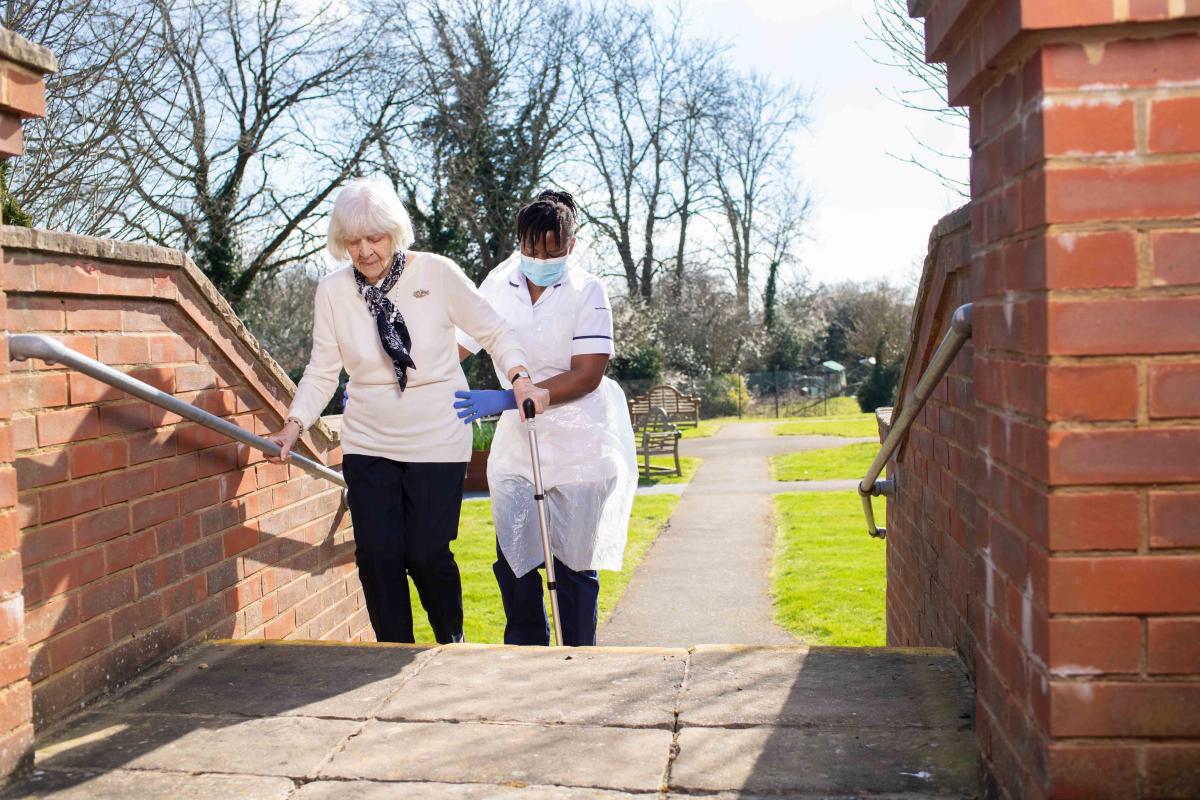The CSP is calling on the government to join up healthcare to treat people until they are fully well – or risk the NHS remaining broken.

Together with members of the Community Rehab Alliance, which the CSP convenes, the Society raised concerns in a joint response to the independent review of the NHS in England.
This warned that the challenges of an ageing population and increasing numbers of people with chronic conditions, on top of years of underinvestment and understaffing, would overwhelm the NHS unless radical reform was brought in.
It urged the government to put in place the right support across all points of the healthcare journey – particularly community-based, out-of-hospital rehabilitation and supported self-management. A&E attendances dropped by as much as a third among those with long-term conditions (LTCs) who were confident to self-manage.
The response to the Darzi Review of NHS Performance, submitted this week, made the point that simply by scaling up existing best practice, the government could relieve the pressure on A&E and GP surgeries and help people co-manage LTCs and recover more fully, and faster from acute episodes.
This is vital to tackling health inequity, ending the postcode lottery that sees at least half of those who need rehab miss out.
Rehab makes hospitals flow
It pointed out that the NHS was at stake, as rising demand will outstrip its current capacity. Every day of July 2024 there were around 13,000 people in acute beds who no longer needed to be there but could not be discharged.
While the 20,000 people a year discharged from acute wards to community beds and care homes without any rehab support risk being re-admitted to hospital.
This is because as well as adding costs to the most expensive parts of the NHS, every unnecessary day in a hospital bed causes harm to patients through deconditioning, a decline in functional ability, and infection.
Stopping this harm and stemming the demand on hospital beds can only be achieved through full implementation of the NHS Intermediate Care Framework nationwide with sufficient rehabilitation staff.
Workforce needs
The submission underscored that if NHS England is to deliver the transformative rehab care needed to rebalance the healthcare system it must ensure there is an adequate rehab workforce.
This workforce needs to be multi-disciplinary and multi-agency, working together – with the right professionals working in the right place, at the right time. This includes using the growing physiotherapy workforce who are experts at delivering therapy-led rehabilitation.
The response pointed to the potential of implementing existing workforce commitments, such as increasing the number of MSK First Contact Practitioners (FCPs) working in Primary Care to 5000.
With GP strikes looming due to spiralling workloads, the alliance pointed out if FCP numbers grew by just 2851 they could manage 50 per cent of musculoskeletal (MSK) consultations in GP surgeries, saving up to £64 per appointment.
Evidence submitted to the Review showed NICE recommendations were not being met in areas including stroke rehabilitation, and the nation is falling short of its target of 85 per cent of people with heart problems having access to cardiac rehab. If the latter was reached, there would be 20,000 fewer deaths and 50,000 fewer hospital admissions. While effective rehab for stroke patients reduces the risk of further strokes by 35 per cent.
There is significant unmet need for pulmonary rehab , one of the biggest causes of health inequality. The expansion of pulmonary rehab would result in £142.6 millions of savings from reduced exacerbations and 194,000 fewer hospital bed days.
New surgical hubs have also led to rising demands on community rehabilitation without the capacity to meet it.
Embedded champions
As well as ensuring the right staffing was in place for long-term transformation of the NHS into the government’s promised Neighbourhood Health Service, the right structures would need to be brought in.
Having rehab leaders in every Integrated Care Board was key to unblocking funding barriers and seeing through delivery. Out of hospital care needs measuring and monitoring to avoid it being cut by local decision-makers under financial pressure.
Best practice at scale
The CSP urged government to scale up best practice across England, including rolling out of Community Appointment Days run by multidisciplinary teams, in partnership with the voluntary sector, to reduce MSK and elective surgery waiting lists.
With rising numbers of people with multiple LTCs, and its link with the growing gap in healthy life expectancy, the CSP urged the development of a more integrated rehabilitative approach for people with multiple LTCs.
Innovative community-based rehab models that combine in-person and remote options for patients are already cutting waiting times, reducing pressures on the most squeezed parts of the NHS and helping patients recover more fully.
Advanced clinical practitioner for LTCs
Implementation at scale would involve creating a new advanced clinical practitioner for LTCs role.
They would provide person-centred ‘rehab prescriptions’ to provide treatment and co-management with patients, taking account of their overall physical and mental health.
It would also involve making full use of the whole rehab workforce, including exercise professionals, trained volunteers and health coaches.
CSP assistant director and CRA co-chair Sara Hazzard said: ‘We can’t afford for the NHS front door to be a revolving one for patients who aren’t supported to recover or manage their long-term conditions.
If the government is to achieve its promised new neighbourhood health service, it must prioritise rehab as much as medicines and surgery
‘That's why we're calling for full integration of rehab services, with the right workforce in place.
‘Patients should not be doomed to the half measures of the past, but look forward to getting back faster to fuller, active futures.’
Find Out More
Number of subscribers: 2